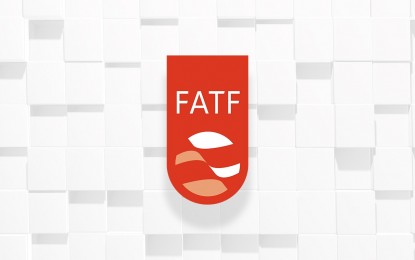
MANILA – A three-pronged approach, including enactment of laws that fight money laundering and terrorist financing, is the “best solution” for a country to secure delisting from the Financial Action Task Force’s (FATF) gray list, a business risk solution executive said.
In a virtual briefing hosted by innovation-focused technology movement Digital Pilipinas on Tuesday, LexisNexis Risk Solutions Asia Pacific Managing Director Bharath Vellore said passing necessary legislation is imperative.
“You would see the governments bringing in better legislations to ensure that law enforcement agencies are equipped to then prosecute any such instances. The law enforcement has to be efficiently equipped with the right legislation,” he said.
The other two measures needed to get out of the gray list include supervision and prosecution, he said.
Vellore said supervision will allow regulatory bodies to check on regulated entities, such as financial institutions as well as non-financial institutions that are considered high risk for money laundering and terrorist financing like real estate, casinos, and other service providers.
Prosecution is also important to prove the government’s ability to address money laundering and terrorist financing crimes, he added.
Vellore said technology solution providers can help the financial sector and the government at the supervision level since the former needs to work with both the regulators and industry players in coming up with the best way to solve the issue which can be used to institute legislation.
Countries that are placed by FATF, a Paris-based global money laundering and terrorist financing watchdog, in its gray list are found to have deficiencies in their anti-money laundering and terrorist financing law and regulations.
The Philippines was again placed on the gray list this year, but authorities said measures are continuously being put in place to improve the country’s ability to address anti-money laundering and terrorist financing.
This is not the first time that the country was put on the gray list.
FATF placed the Philippines on its gray list before the enactment of the Anti-Money Laundering Act of 2001, and again in 2010 for failure to meet the deadline to have counter-terrorism financing laws. (PNA)
